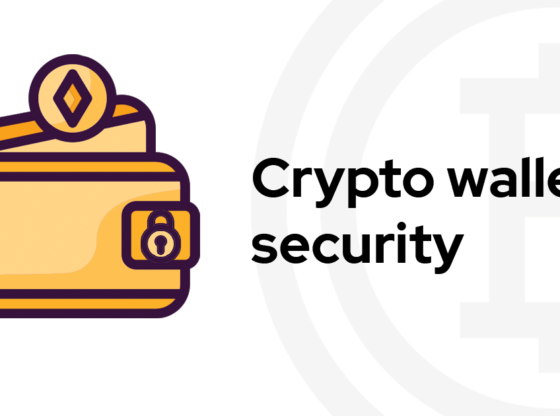Types of Crypto Wallets
1. Hardware Wallets
Hardware wallets are physical devices designed specifically for storing cryptocurrency keys offline, offering the highest level of security. Popular brands in this category include Ledger Nano S and Trezor. These wallets provide an extra layer of protection against hacking and online theft. However, they may come at a higher cost compared to other types of wallets.
2. Software Wallets
Software wallets, also known as digital wallets, are applications or software programs that run on various devices such as desktop computers, mobile phones, or accessed online through web browsers. They offer convenience and accessibility, with notable examples including Exodus, Electrum, and MyEtherWallet. Software wallets are suitable for users who prioritize ease of use and accessibility.
3. Paper Wallets
Paper wallets are a form of cold storage where the user’s private keys are printed or written on a physical piece of paper. While they offer offline security, they require careful handling to prevent loss or damage. Creating a paper wallet involves generating keys offline and securely storing them, making it an ideal option for long-term storage of large cryptocurrency holdings.
Also Read: Maximize Cache Shop Performance Through Intelligent Replacement Strategies
Factors to Consider When Choosing a Crypto Wallet
When selecting a crypto wallet, several factors should be taken into account:
- Security Features: Look for wallets with robust security measures such as two-factor authentication (2FA), encryption, and biometric authentication.
- User-Friendliness: Choose a wallet that is intuitive and easy to navigate, especially for beginners.
- Compatibility: Ensure the wallet supports the cryptocurrencies you intend to store or trade.
- Customer Support: Opt for wallets with responsive customer support to address any issues or concerns promptly.
Common Symptoms of Insecure Wallets
Identifying the signs of insecure crypto wallets can help users avoid potential risks and losses:
- Lack of Two-Factor Authentication: Wallets without 2FA are more vulnerable to unauthorized access.
- Absence of Cold Storage Option: Cold storage wallets provide an extra layer of security by keeping private keys offline.
- Poor Reputation or Reviews: Researching the reputation and reviews of a wallet can reveal potential security flaws or vulnerabilities.
Tips for Securing Your Crypto Wallet
To enhance the security of your crypto wallet, consider implementing the following measures:
- Enable Two-Factor Authentication (2FA): Adding an extra layer of security with 2FA can prevent unauthorized access.
- Backup Your Private Keys: Create backups of your wallet’s private keys and store them securely offline.
- Keep Software and Firmware Updated: Regularly update your wallet’s software and firmware to patch any security vulnerabilities.
Expert Insights on Crypto Wallet Security
Cryptocurrency experts emphasize the importance of prioritizing security when managing digital assets:
- John Smith, Cryptocurrency Analyst: “Security should be the top priority when choosing a crypto wallet. Investing in a reputable hardware wallet can provide peace of mind and protect your investments from cyber threats.”
- Emily Johnson, Blockchain Consultant: “Always practice good security hygiene by using strong, unique passwords and enabling additional security features like 2FA. It’s better to be proactive and prevent security breaches than to deal with the aftermath.”
Also Read: Getting to Know Bruce Wilpon’s Wife A Power Couple
Conclusion
In conclusion, choosing the right crypto wallet is essential for safeguarding your digital assets and ensuring ease of use. FintechZoom’s recommendations highlight the importance of security and accessibility in cryptocurrency management. By considering factors such as security features, user-friendliness, and expert insights, users can make informed decisions when selecting a crypto wallet. Remember to prioritize security and stay vigilant against potential threats in the ever-evolving landscape of cryptocurrency.
FAQs
1. What is a crypto wallet?
A crypto wallet is a digital tool that allows users to securely store, send, and receive cryptocurrencies such as Bitcoin, Ethereum, and more. It consists of a public address and a private key, which are used to facilitate transactions on the blockchain network.
2. Why is choosing the right crypto wallet important?
Choosing the right crypto wallet is important for protecting your investments and ensuring ease of use. A secure and user-friendly wallet can safeguard your digital assets from theft, hacking, and other security risks.
3. What are the different types of crypto wallets?
There are three main types of crypto wallets: hardware wallets, software wallets, and paper wallets. Hardware wallets are physical devices designed for offline storage, while software wallets are digital applications or programs. Paper wallets involve printing or writing down the private keys on a physical piece of paper.
4. How can I enhance the security of my crypto wallet?
You can enhance the security of your crypto wallet by enabling two-factor authentication (2FA), backing up your private keys, and keeping your wallet’s software and firmware updated. Additionally, choosing a reputable wallet with robust security features is essential.


